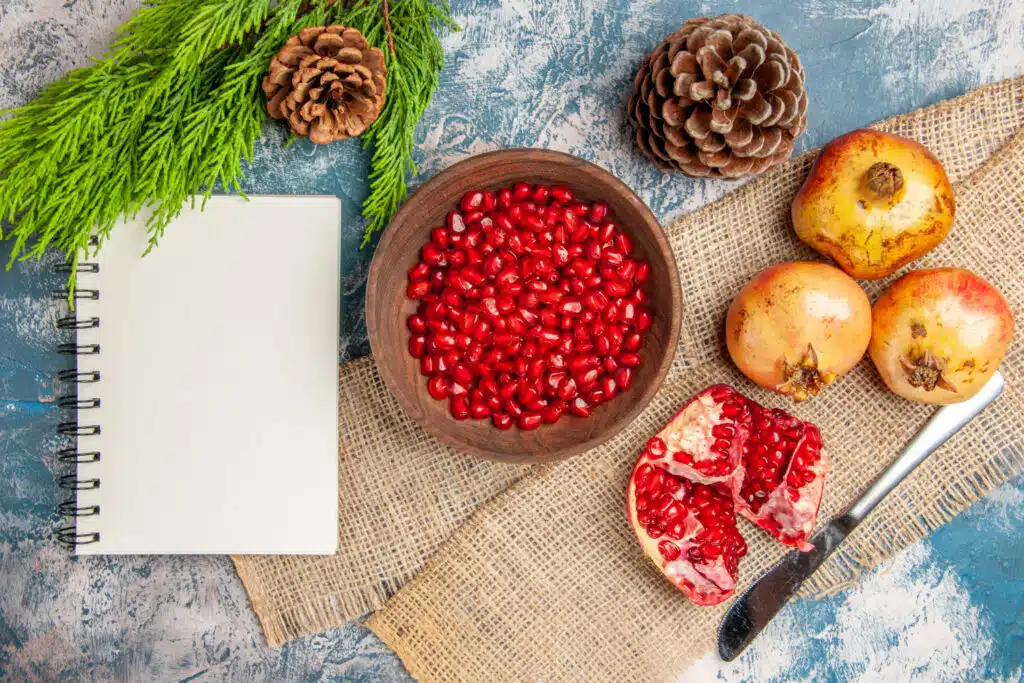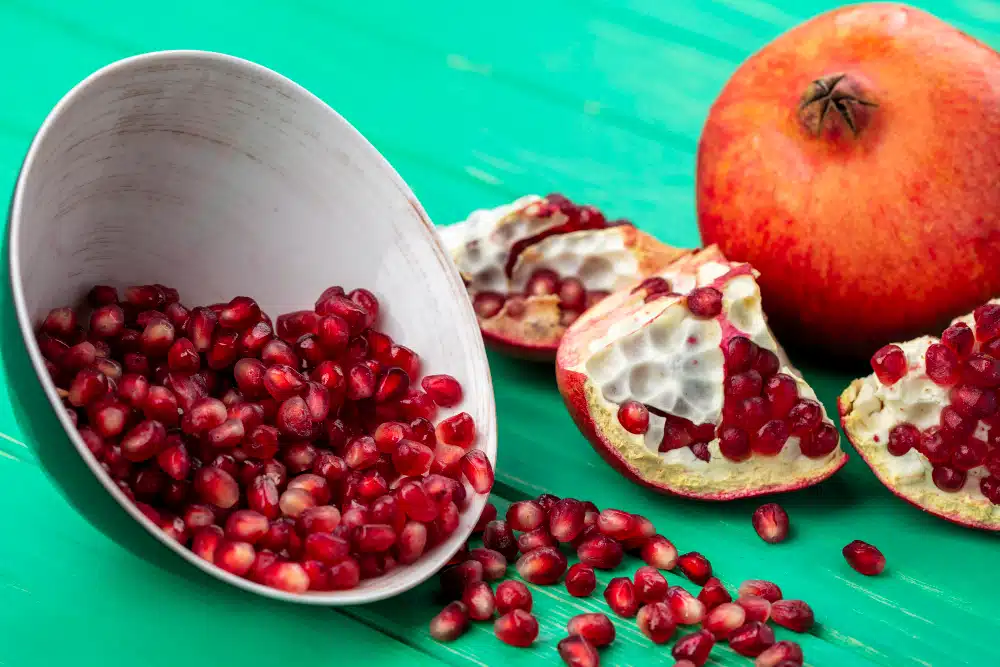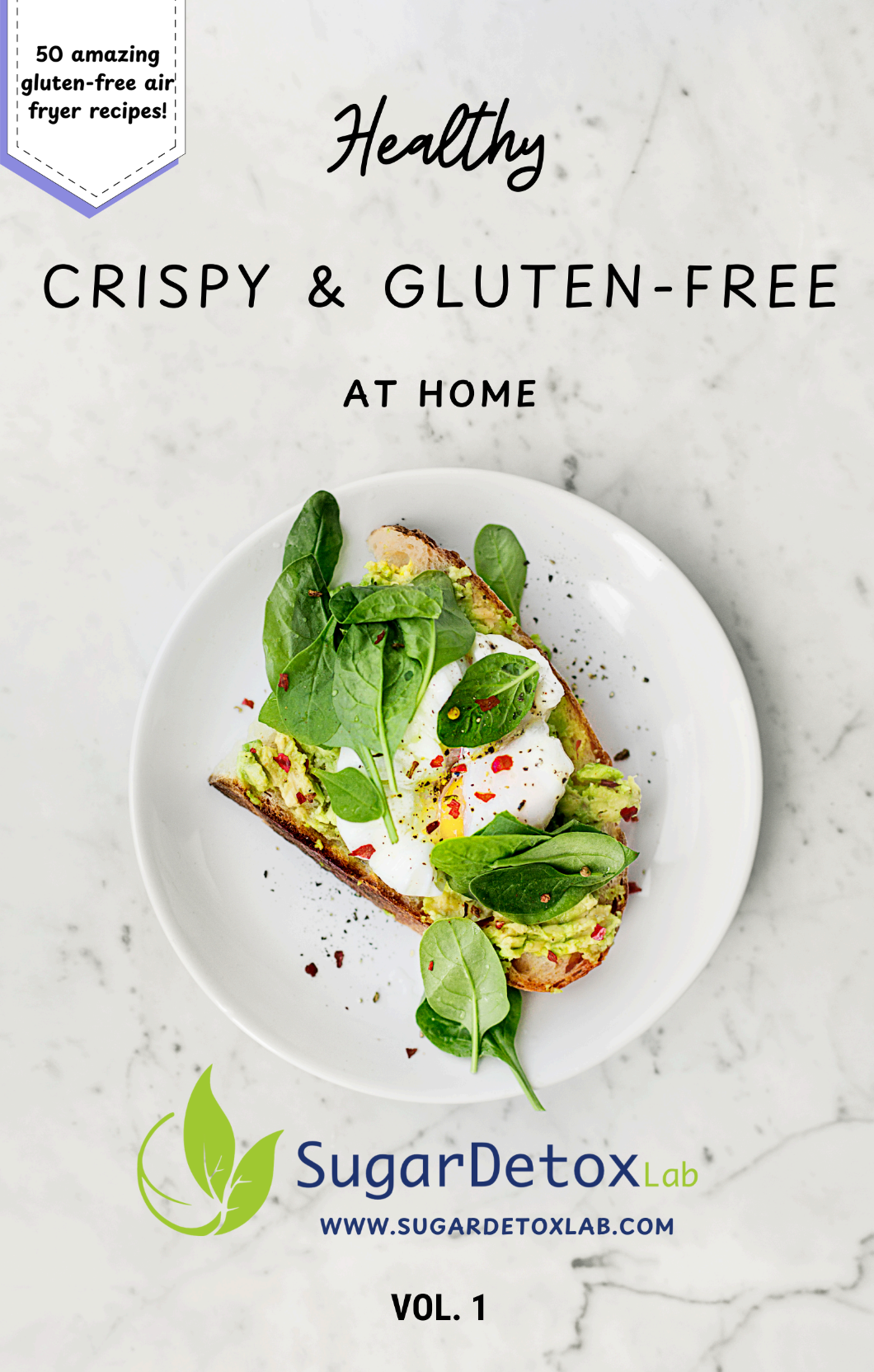Why Winter Calls for Antioxidant-Rich Foods
The Antioxidant Ingredient You Should Add to Every Winter recipe is pomegranate. This jewel-like fruit is not only delicious but also packed with antioxidants that support immunity, heart Pomegranate Health Benefits, and skin wellness during the colder months.

This is why antioxidant-rich foods play such an important role during the colder months. Antioxidants are compounds found in plant-based foods that protect the body from oxidative stress—a process that can damage cells, accelerate aging, and contribute to chronic illness. By eating foods high in antioxidants, you’re essentially strengthening your body’s natural defense system.
And when it comes to winter-friendly antioxidant foods, there’s one ingredient I keep turning to again and again: the pomegranate.
Meet the Pomegranate: A Jewel of the Winter Season

With its ruby-red seeds and sweet-tart flavor, the pomegranate is both beautiful and nutritious. Native to the Middle East and cultivated for thousands of years, it has been celebrated in ancient cultures as a symbol of health and fertility. Today, it’s widely recognized as a superfood, especially valued for its high antioxidant content.
Pomegranate seeds, or arils, are edible bursts of juicy flavor that also deliver a concentrated dose of vitamins, minerals, and fiber. They’re widely available from late fall through winter, making them one of the few fresh fruits that shine during the coldest months of the year.
Nutritional Profile of Pomegranate Seeds
A ¾-cup serving of pomegranate arils contains:
- 6 grams of fiber – supporting digestion and satiety
- Vitamin C – boosting immunity and skin health
- Vitamin K – essential for bone health and blood clotting
- Potassium – supporting muscle and heart function
- Powerful antioxidants – including polyphenols, flavonoids, and tannins
This unique nutrient mix makes the pomegranate one of the most antioxidant-dense fruits available in grocery stores.
The Science-Backed Pomegranate Health Benefits

1. Boosts Immune Function
Winter is cold and flu season, and the vitamin C in pomegranates can help strengthen your immune system. Antioxidants also play a role in protecting immune cells from oxidative damage, making it easier for your body to fight off infections.
2. Reduces Inflammation
Chronic inflammation is linked to conditions such as arthritis, diabetes, and heart disease. The polyphenols in pomegranates have been shown to have anti-inflammatory properties, making them a natural way to support long-term health.
3. Supports Heart Health
Research suggests that consuming pomegranate juice or seeds may help lower blood pressure, improve cholesterol levels, and increase blood flow to the heart. These effects are largely attributed to the high concentration of polyphenols, which benefit the cardiovascular system.
4. Aids in Healthy Digestion
With 6 grams of fiber per serving, pomegranate seeds promote digestive health, support gut microbiome balance, and help regulate blood sugar.
5. Promotes Skin Health
Antioxidants protect skin cells from free radicals that cause premature aging. Regularly including pomegranates in your diet may support collagen production and help your skin look radiant even during the harsh winter months.
How to Use Pomegranates in Everyday Recipes

One of the best things about pomegranates is their versatility. They work beautifully in both sweet and savory dishes, making them an easy addition to almost any meal.
Here are some of my favorite ways to use them:
In Breakfasts
- Sprinkle pomegranate seeds over Greek yogurt or oatmeal with honey and nuts.
- Add them to smoothies for a burst of sweetness and antioxidants.
- Toss them on pancakes or waffles for a colorful topping.
In Salads
- Pair arils with kale, walnuts, and citrus dressing for a refreshing winter salad.
- Add them to grain bowls with quinoa or farro for texture and flavor.
- Mix them into a lentil salad with feta for a protein-packed lunch.
With Main Dishes
- Use pomegranate seeds as a garnish for roasted chicken or lamb.
- Make a pomegranate reduction sauce to drizzle over beef or salmon.
- Add them to vegetable stir-fries for a surprising crunch.
As Snacks & Appetizers
- Serve baked Brie topped with pomegranate seeds and honey.
- Spread whipped feta with pomegranate arils on crostini for a festive starter.
- Mix seeds into guacamole for a sweet twist.
In Desserts
- Use pomegranates as a topping for fruit salad or parfaits.
- Add them to chocolate bark for a holiday-ready treat.
- Incorporate them into cakes or muffins for a seasonal burst of flavor.
Practical Tips for Enjoying Pomegranates
Many people avoid pomegranates because they think removing the seeds is messy or time-consuming. But with the right technique, it’s simple:
- Cut the pomegranate in half.
- Submerge it in a bowl of water.
- Gently break apart the fruit and let the seeds sink to the bottom while the peel floats to the top.
This method minimizes juice splatter and makes it easy to collect the arils.
–Pro tip: You can also buy pre-packaged pomegranate arils if you’re short on time, or keep a bag of frozen arils in your freezer to enjoy the benefits year-round.






